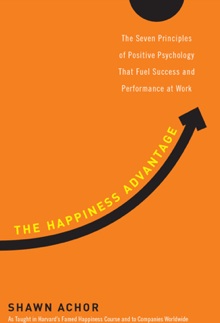 It seems whenever we turn on the TV these days we witness disastrous scenes of flooding, fires, and typhoons forcing people from their homes and leaving businesses devastated.
It seems whenever we turn on the TV these days we witness disastrous scenes of flooding, fires, and typhoons forcing people from their homes and leaving businesses devastated.
Yet, studying the trauma left in the wake of these disasters has provided researchers a way to discover how positive responses can also bloom in the aftermath of trauma.
In the new field of positive psychology, it’s not enough to study how happiness flourishes when things are good. Researchers have developed a principle called “falling up” which refers to how some people — individuals with high optimism and success — manage to gain growth not despite a trauma, but because of it.
To see what I mean, try the following brief positive psychology experiment.
On a sheet of paper, quickly jot down three of the greatest moments of GROWTH in your life. Do it right now — before reading ahead.
When I do this simple exercise at companies, close to 90% of responses are connected to some highly stressful period of change. Many people cite going to college, studying abroad, playing in the finals, quitting a job to find a better one, the birth of a child, even depression. I’ve never had someone respond that a vacation was one of their greatest moments of growth.
Stress and Change are the Engines of Human Growth
In fact, think about it: name a single biography worth reading that does not involve an extremely stressful challenge or failure on the part of the protagonist. That is because stress and change are the engines of human growth.
Research, as well as experience, shows us that some people definitely experience negative effects from traumatic situations (PTSD). Other people are resilient, grieving at first, but then bouncing back to their original level of functioning. As a researcher, I’m not interested in those. I’m really interested in studying those “positive outliers” who are affected by trauma, but who turn it into long-term personal growth.
First, and this is extremely important, positive psychology never argues that trauma itself is good. Tragedies like 9/11 and the earthquake-tsunami in Japan are exactly that: tragedies. The loss of human life is unfathomable. Some authors mistakenly assume that looking for growth in the midst of challenge ignores the human suffering, which is why they rail against positive psychology. I’ve even seen therapists and spiritual leaders confuse post-traumatic growth with assuming that the trauma itself is good. A car accident, breast cancer, a flood, getting fired — these are traumatic and by definition should be avoided. But the catastrophe is not the end of the story. Once a trauma has occurred, positive psychology prompts people to ask, “What now?”
is not the end of the story. Once a trauma has occurred, positive psychology prompts people to ask, “What now?”
Google “post-traumatic growth” and you will find a wealth of research on individuals who experienced growth after the worst traumas you can imagine: heart attack, breast cancer, military combat, refugee displacement. What fascinates me and other researchers is why, after a heart attack, some people become altruistic and get their priorities in line, or how the loss of a job leads to a shifting of career choice to one which aligns better with that person’s strengths, or why someone can walk away from a car accident with a new lease on life, or how someone with cancer can help deepen social support networks for survivors.
3 Things You Can Do in the Wake of Personal Trauma
Research has illuminated differences between people who experience growth after trauma and those who do not. First, these individuals continue to believe that their behavior still matters, which is one of the components of optimism. If you have experienced a trauma, find one concrete action — something you know you can do — to decrease the negative feelings associated with the trauma. For example, if you had a heart attack, decide to give up desserts on Sundays. This gives your brain a “win,” allowing it to keep moving forward.
Second, post-traumatic growth blooms best in a soil of deep social support. If you experience a trauma, try to actively seek the support of your social network — rather than passively waiting for that network to approach you in the midst of hardship. Everyone has their own timetable for recovery, but post-traumatic growth can begin to occur at any point in the grieving process — whether it be one day or ten years later. Social support speeds the process of recovery.
Third, change the way you describe the trauma to yourself. For example, when I was at Harvard Divinity School, I went through two years of depression. At the time, it was terrible. And I could leave the story there. But that misses out on the reality that post-traumatic growth occurred. Because of that depression (not despite it), I began to understand what gets in the way of us creating positive change in our lives, and that jumpstarted my interest in positive psychology and my desire to help people change their mindsets and habits. If it were not for depression, I would not have the understanding, nor the compassion, to help people like I can today. Learning to tell myself that story — rather than the pessimistic version of what happened — has been key to my growth.
Trauma is always bad — but it’s also the beginning of the story, not the end. In the midst of tragedy, we must mourn, but also maintain a belief that our behavior still matters and that growth in life is still possible.
________________________________
Shawn Achor is the founder of Good Think, Inc. and the author of The Happiness Advantage: The 7 Principles of Positive Psychology That Fuel Success and Performance at Work. In 2006, he was Head Teaching Fellow for “Positive Psychology,” the most popular course at Harvard at the time. He holds a Masters from Harvard Divinity School and has spoken in 45 countries to a wide variety of audiences, including bankers on Wall Street, students in Dubai, and CEOs in Zimbabwe.



















